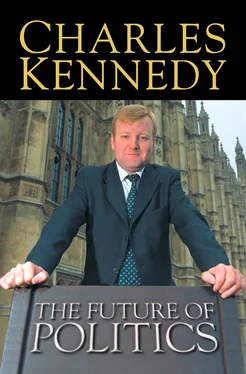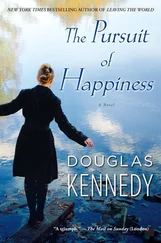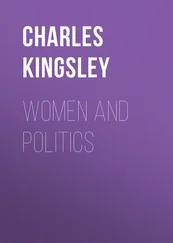We must also not overlook the very real problem of rural poverty. It’s not just farmers who are angry about the present government. The Rowntree Foundation interviewed sixty young people from rural backgrounds, and found that only two of them had secure accommodation and financial independence, and all felt that the only long-term solution to their housing and employment difficulties was to leave the countryside. Poor transport, lack of affordable housing and decline in the traditional sources of rural income are creating poverty blackspots in areas many urbanites still think of as idyllic. The problems of the countryside are likely to be exacerbated by the government’s decision to make benefits payable by Automatic Cash Transfer rather than over the counter at Post Offices. This means that many rural sub-post offices will become economically unviable and be forced to close, and since these are usually twinned with village shops, rural Britain risks losing a vital hub of community life.
On a recent visit to the West Country, a farmer asked me why Labour had seemingly abandoned them, even though it held more rural seats than ever before. I knew the answer, and it becomes clearer every day. The present government has more rural constituencies, certainly, but among them plenty that it neither needs nor wants. The bulk of its ministers are from an urban background, and its outlook is consequently not particularly sensitive to the needs of the rural population. Many of Labour’s rural seats are expendable – it doesn’t need them to stay in power – that’s why they can happily tell farmers to stop whingeing and diversify. 5 Конец ознакомительного фрагмента. Текст предоставлен ООО «ЛитРес». Прочитайте эту книгу целиком, купив полную легальную версию на ЛитРес. Безопасно оплатить книгу можно банковской картой Visa, MasterCard, Maestro, со счета мобильного телефона, с платежного терминала, в салоне МТС или Связной, через PayPal, WebMoney, Яндекс.Деньги, QIWI Кошелек, бонусными картами или другим удобным Вам способом.
Wherever it occurs, poverty breeds poverty and further exclusion. In our nation, significant numbers of people are growing up with limited access to the sort of services that are normally considered essential for full participation in society. A recent study by the University of Newcastle looked at people’s access to energy, food, telephones, banking and food retailing in two poor neighbourhoods. It was clear that service providers, like phone and other utility companies, as well as the discount supermarkets, were physically withdrawing from low-income areas. The more limited the access to a service became, the more it cost the people who could least afford it: for example, prepayment electricity meters, small food shops, public telephones and loan sharks all cost the user significantly more. This is the Tory legacy of ‘market forces’ and ‘no such thing as society’. It is the ultimate proof that the market is not the guarantor of freedom. To escape the cycle, people need to find jobs, but when they have to spend their benefits travelling into town to charge up the electricity meter, there is understandably less spare cash for making phone calls. So the cycle repeats itself – across Britain, in our cities and villages, there is an underclass, with significantly lower life expectancy, lower levels of health and fitness, and with compromised access to good education, to transport, to society itself. How can we talk about democracy when large numbers of our people are disenfranchised in this way?
The real question is whether New Labour has either the attitude or the ability to reverse these worrying trends. I started to worry when I heard Tony Blair calling the public sector ‘inflexible’. Certainly, there are areas that need reforming, and there is still too much Old Labour sentiment in some small yet influential areas of the union movement. But is it really inflexibility that leaves patients on trolleys in hospital corridors and forces pensioners awaiting cataract operations to fly to India to bypass eighteen-month waiting lists? That compels the NHS, in the grip of a flu crisis (the idea of which was in any case exaggerated to cover up Labour’s health failures), to send patients to France because our hospitals have reached critical mass? Or that leaves children in schools with woefully inadequate books and equipment?
Arguably, in some areas of the public sector, there is a little too much flexibility. In Britain’s universities, there is a profound sense of unease over the working conditions of academics. Increasingly, universities are being forced to hire people on short-term contracts, often for a term or a year, and often on a part-time basis. Academics, particularly young academics seeking to make a mark, are forced to publish at such a rate of knots that their work does not meet the quality that would have been expected only a few years ago. In the university environment, where we need people to think in a considered and long-term manner, that is far from ideal. Yet that is what flexibility breeds, and in the university context, it is self-defeating.
The real problem is not inflexibility. It is a deliberate reluctance on the part of New Labour radically to address poverty and the countless other injustices blighting our society. A reluctance born of the fact that New Labour dare not be honest about the money it needs to spend to put these things right, for fear of losing the support of the wealthiest sections of society, who have benefited from New Labour’s concessionary attitude to tax.
I am not delivering a blanket criticism of the Labour government. A recent University of Cambridge study suggested that the incomes of the poorest tenth of the population have risen over the last three budgets, while the richest tenth have, on average, not become any richer. The study said that the poorest families with children have seen their income rise by 16 per cent. At the same time, Labour’s welfare programme was met with howls of discontent from the start. Witness the furore when Harriet Harman announced in autumn 1997 that she was going ahead with the Conservative plans to phase out additional benefits for single mothers, and the similar uproar when the government cut disability benefits, and introduced tuition fees for students in 1999.
In contrast to the Cambridge study we also have to consider the figures released by the Office of National Statistics in April 2000, which indicated that the gap between the earnings of the richest and the earnings of the poorest has widened to its highest level since Margaret Thatcher was Prime Minister. The government was visibly embarrassed by these findings, which overshadowed John Prescott’s plans for a ten-year drive against poverty in the inner cities, launched only days before. They argued, in response, that the figures were unrepresentative, because measures such as the New Deal and the Working Families Tax Credit had simply not had time to take effect.
We cannot deny that Labour is spending money – but its record of benefit cuts indicate that it is doing so very selectively. There have been no universal increases in cash benefits – though academics have argued that this was what was desperately needed for a country where nearly 14 million received below half the average income. 6 Конец ознакомительного фрагмента. Текст предоставлен ООО «ЛитРес». Прочитайте эту книгу целиком, купив полную легальную версию на ЛитРес. Безопасно оплатить книгу можно банковской картой Visa, MasterCard, Maestro, со счета мобильного телефона, с платежного терминала, в салоне МТС или Связной, через PayPal, WebMoney, Яндекс.Деньги, QIWI Кошелек, бонусными картами или другим удобным Вам способом.
They have also not funded these increases from income tax.
Читать дальше












